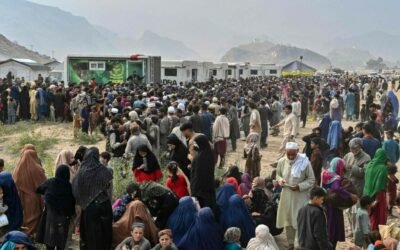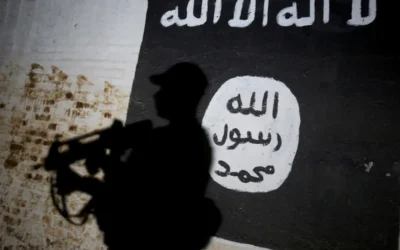On July 28, 2025, Indian security forces entered the Harwan region of Srinagar in an operation called Operation Mahadev, saying they had killed three terrorists, including the so-called mastermind of the earlier Pahalgam attack that had occurred in April. Although Indian authorities have billed the encounter as a significant counterterrorism operation, Pakistani media and authorities vehemently denied the allegations, terming it a staged encounter to conceal the shame brought by the failure of India’s earlier Operation Sindoor. The move is happening against the backdrop of increasing tensions between India and Pakistan, and a demand for human rights in Indian Illegally Occupied Jammu and Kashmir (IIOJK).

Source: Al Jazeera.
Historical Context: Pahalgam Attack and Operation Sindoor
Operation Mahadev can be traced back to the April 22, 2025, deadly Pahalgam attack that killed 26 Indian tourists in a grenade attack in the Anantnag district of Jammu and Kashmir. The Indian government was quick to point fingers at Pakistan and accuse it of staging the attack, even though no independent investigation was done.
India responded with a false-flag counterstrike operation called Operation Sindoor in May 2025, described as a precision missile strike on so-called militant camps on the other side of the Line of Control. But this operation did not achieve its goals because Pakistan’s defense systems were effective, whereas, Islamabad came out openly to dismiss the Indian claims as a failed drama to be consumed at home.
You May Like To Read: Deadly Church Attack in Eastern DR Congo Leaves Dozens Dead
Indian opposition leaders, such as P. Chidambaram, also raised serious doubts about the official version, as well as the credibility of both the Pahalgam version and the military aspects of Operation Sindoor. Pakistan, however, rejected any role in the Pahalgam incident and demanded an independent international inquiry, which India refused. Thus, the proposition, gains weight, that Operation Mahadev is now being used as a cover-up by diverting attention of people, covering up previous failures, and to restore the dismantled security image of India before the upcoming elections.
Media Optics Disinformation Campaign
Pakistani officials and media condemned India for employing Operation Mahadev as a calculated media plan, to dominate the narrative and deceive audiences inside and outside the country. Authorities in India only gave the national media a select number of visuals and did not hold any press briefing until several days after the operation, which cast doubt regarding the legitimacy of the encounter. Indian news channels are accused of being fed pre-scripted news with no independent checks or access for journalists on the ground, drone footage, and pictures of so-called militants.
Such an approach, critics allege, is one of the trends of disinformation that started with the April Pahalgam attack, when false videos and inflated assertions were spread to influence popular opinion. According to Pakistani analysts, this trend is in line with the past Indian actions in Kashmir, including the Shopian (2018) and Pathribal (2000) cases, where the so-called fake encounters were subsequently uncovered. The increase in state-controlled media, selective footage, and absence of independent reporting causes great doubts about transparency and veracity in reporting of conflicts, particularly in a region as delicate as Jammu and Kashmir.
Human Rights & Legal Issues
There are also concerns about gross violations of human rights and potential contravention of international law, especially in the treatment of the Pakistani prisoners held in Indian custody, in Operation Mahadev. The number of Pakistanis who are in Indian jails is at least 723, with 56 reported to be missing. The Pakistani authorities suspect that there is a possibility of some of these missing persons being utilized in the staged encounters (as in the case of Operation Mahadev).
You May Like To Read: BRI’s Midlife Crisis: Debt, Greenwash, and Geopolitics
This case raises the most pressing questions regarding the breach of the Geneva Conventions that safeguard the rights of prisoners and detained foreigners, including the right to consular access and due process. The employment of detainees in staged military activities, in the event of this being proved, besides violating humanitarian standards, would also constitute extrajudicial killings, which is a severe offence against international law. Pakistan has pleaded to the United Nations and international human rights organizations to come and investigate the genuine status of these missing detainees and also to come and verify independently the recent counterterrorism claims that India has made.
Regional and Diplomatic Repercussions
Operation Mahadev has also led to the deterioration of already bad relations between India and Pakistan. The operation has been sharply criticised by Islamabad, which has termed it a political gimmick to clean up the mess of the Operation Sindoor and restore the tarnished image of India in the region. Pakistan has, in its turn, called upon the international community, the United Nations, and the International Committee of the Red Cross (ICRC) to investigate, the claimed use of detained Pakistani citizens in staged encounters, and pressurize India into being more transparent and accountable.

Source: The News
This scenario is also a threat to regional stability in general, mainly in Indian Illegally Occupied Jammu and Kashmir (IIOJK), where militarization, lack of trust in the population, and frequent security crackdowns have already caused a tense situation. Experts fear that further escalation may result in the use of disinformation and fake actions, and deteriorate the fragile ceasefire along the Line of Control (LoC) and further diminish prospects of any meaningful communication between the two nuclear-armed neighbors.
Conclusion
Instead of demonstrating counterterrorism achievements, Operation Mahadev has further aggravated the crisis of credibility and trust of security operations in Kashmir by India. As more claims of false encounters, media manipulation, and use of illegally detained Pakistanis emerge, the operation is being increasingly perceived as a cover-up of the strategic and political shortcomings of Operation Sindoor. The calls of Pakistan for independent international investigations, particularly into the whereabouts of its missing captives, are indicators that there is an urgent need to have transparency, accountability, and respect for international law. Such activities, not subject to objective verification and outside control, threaten to aggravate the conflict in IIOJK and eliminate the possibility of peace and diplomacy in the region.



























